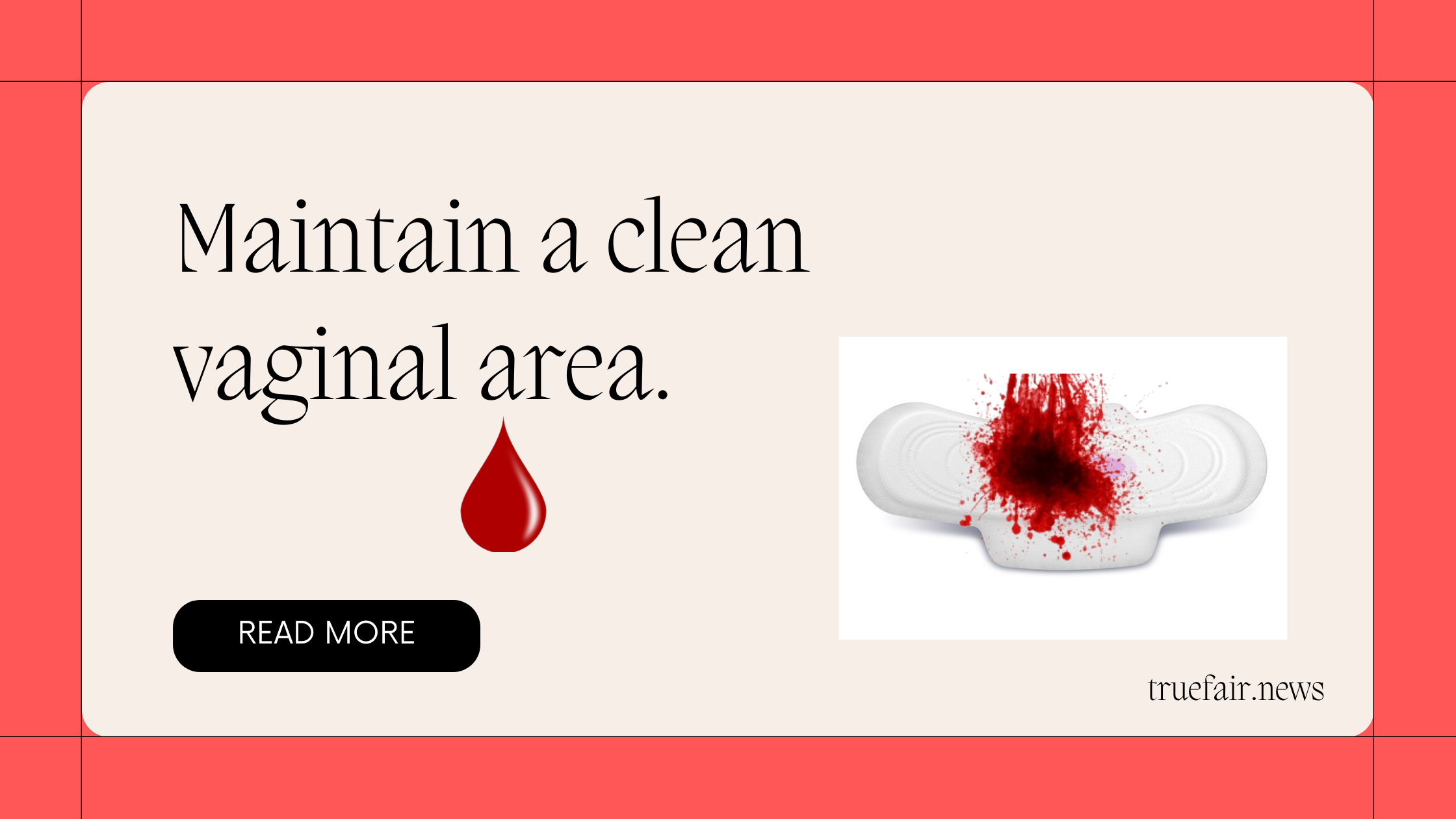
Menstrual health is the condition of being physically, mentally, and socially healthy throughout the menstrual cycle rather than simply being free of infections. Thus, it implies that girls, women, and anyone else who has a menstrual cycle are always healthy and fit throughout their cycle.
Menstrual health is critical because it contributes to global pollution reduction, gender equality, and a significant reduction in diseases among females during their menstrual cycle. In this article, we'll go over some tips for maintaining perfect menstrual hygiene.
Here are some menstrual hygiene guidelines that every woman should adhere to.
Maintain a clean vaginal area.
It is critical to keep your virginal area clean, especially during the discharge of blood from the body. Wash the affected area with warm water and diluted soap during this time. There are several vaginal washes recommended for cleaning your body. If the wash irritates your skin or vagina, stop using it and consult a doctor. Most women don't need to wash their vaginas because it has a self-cleaning mechanism.

Replace your pad with a new one every four hours.
Remember to change your sanitary pads frequently if you use them to soak up the flow during your periods. It is best to change it every four hours. If not every day, do it on the first two days when the blood discharge is very heavy. Wear the same pad for not more than eight hours on others.
Clean reusable pads properly.
Sanitary napkins that can be used for multiple menstrual cycles are available. If you make use of this kind of pad, make sure you clean them thoroughly after each use to eliminate germs and the possibility of infection. Follow the directions and do not reuse them after the specified number of uses.
Never use two pads at the same time.
Some women who have heavy flow use two sanitary pads at once to control the flow and avoid staining their clothes. However, this is a bad idea because it can lead to vaginal infections. Stick to one and change it frequently if the flow is higher.
Wear clean, comfortable underwear.
While changing your sanitary pad is essential, you should also wear something comfortable these days. Tight thongs or underwear made of a material that does not allow your skin to breathe can also cause infections. Wear clean, comfortable cotton knickers that do not cling to your skin.
Wash your body frequently
When you menstruate, blood tends to enter small spaces, such as the skin between your labia or the crust around the vaginal opening, and you should always wash this excess blood away. This method also helps to eliminate odour from the vaginal region. As a result, it is critical to thoroughly clean your vagina and labia (the projecting part of the female genitals) before changing into a new pad. Make sure you wipe the area with tissue paper if you are unable to wash it when you want to change your pad to avoid infections and odor.
Do away with soap or vaginal hygiene products.
The vagina has a mechanism that maintains a delicate balance of good and bad bacteria. Washing it with soap can kill the good bacteria, allowing infections to flourish. So, while it is vital to wash your hands frequently during this time, all you need is some warm water. You can use soap on the outside but not on the inside of your vagina or vulva.
Use the proper washing method.
The area should be washed or cleaned in a circular motion from the vagina to the anus. Never wash in the opposite direction. Washing in the opposite direction can cause bacteria from the anus to become lodged in the vagina and urethral opening, resulting in infection.
Effect of poor menstrual hygiene
There are several severe health risks associated with poor menstrual hygiene these illness includes;
● Reproductive and urinary tract infections
● Spread of infections, such as hepatitis B and thrush
● Complication during childbirth
● Pelvic inflammatory diseases (PID).
● Amenorrhea( absence of menstruation)
Conclusion
Health is wealth, so they say, therefore, you must take care of your body during your menstruation cycle to avoid several illnesses or infections.
Not Medical Advice! Seek Professional Help!

